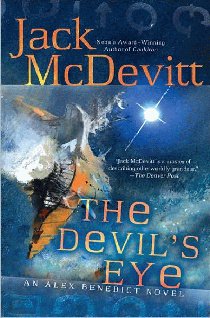Jack McDevitt - A Talent for War
Here you can read online Jack McDevitt - A Talent for War full text of the book (entire story) in english for free. Download pdf and epub, get meaning, cover and reviews about this ebook. genre: Science fiction. Description of the work, (preface) as well as reviews are available. Best literature library LitArk.com created for fans of good reading and offers a wide selection of genres:
Romance novel
Science fiction
Adventure
Detective
Science
History
Home and family
Prose
Art
Politics
Computer
Non-fiction
Religion
Business
Children
Humor
Choose a favorite category and find really read worthwhile books. Enjoy immersion in the world of imagination, feel the emotions of the characters or learn something new for yourself, make an fascinating discovery.
- Book:A Talent for War
- Author:
- Genre:
- Rating:5 / 5
- Favourites:Add to favourites
- Your mark:
- 100
- 1
- 2
- 3
- 4
- 5
A Talent for War: summary, description and annotation
We offer to read an annotation, description, summary or preface (depends on what the author of the book "A Talent for War" wrote himself). If you haven't found the necessary information about the book — write in the comments, we will try to find it.
A Talent for War — read online for free the complete book (whole text) full work
Below is the text of the book, divided by pages. System saving the place of the last page read, allows you to conveniently read the book "A Talent for War" online for free, without having to search again every time where you left off. Put a bookmark, and you can go to the page where you finished reading at any time.
Font size:
Interval:
Bookmark:
PROLOGUE
THE AIR WAS heavy with incense and the sweet odor of hot wax.
Cam Chulohn loved the plain stone chapel. He knelt on the hard bench and watched the crystal water dribble across Father Currys fingers into the silver bowl held by the postulant. The timeless symbol of mans effort to evade responsibility, it had always seemed to Chulohn the most significant of all the ancient rituals. There, he thought, is the essence of our nature, displayed endlessly throughout the ages for all who can see.
His gaze lingered in turn on the Virgins Alcove (illuminated by a few flickering candles) and the Stations of the Cross, on the simple altar, on the hewn pulpit with its ponderous Bible. It was modest by the opulent standards of Rimway and Rigel III and Taramingo. But somehow the magnificence of the architecture in those sprawling cathedrals, the exquisite quality of the stained glass windows, the satisfying bulk of marble columns, the sheer angelic power of the big organs, the sweeping choir lofts: it all got in the way. Here, halfway up a mountainside, he could look out over the river valley that the early fathers, in a burst of enthusiasm, had dedicated to St. Anthony of Toxicon. There was only the river, and the ridges, and the Creator.
Chulohns visit to the Abbey was the first by a presiding bishop (so far as he could determine) during the entire existence of the community. Albacore, this snowbound, cold world at the farthest extreme of the Confederacys influence, was home to few other than the fathers. But it was not difficultenjoying its massive silence, listening for the occasional distant rumble of a rockslide, taking the cold vigorous air into his lungsto understand how it was that it had housed, at one time or another, the finest scholars the Order had known. Martin Brendois had written his great histories of the Time of Troubles in a cubicle just above the chapel. Albert Kale had completed his celebrated study of transgalactic strings, and Morgan Ki had composed the essays that would link his name irrevocably to classic economic theory.
Yes, there was something about this place that called forth greatness.
After mass, he walked along the parapet with Mark Thasangales, the Abbot. They were wrapped in coats, and their breath hung before them. Thasangales had much in common with St. Anthonys Valley: no one in the Order could remember when he had been young. His features were as uncompromising and lined as the limestone walls and snowswept crags. He was a tower of faith: Chulohn could not imagine those dark blue eyes beset by the doubts that harried ordinary men.
They were reminiscing about better timesas middle-aged men who have not seen each other for a long time willwhen the Abbot shook off the past. "Cam," he said, raising his voice slightly to get above the wind, "youve done well."
Chulohn smiled. Thasangales was talented: his capability for raising and managing funds in no way diminished his certifiable aura of sanctity. He was a superb administrator and a persuasive speaker, precisely the sort of man to represent the Church and the Order. But he had always lacked ambition. And so he had returned to St. Anthonys when the opportunity offered. And he had stayed a lifetime. "The Church has been good to me, Mark. As it has been to you." They looked down from the mountaintop on which the Abbey stood. The floor of the valley was brown with approaching winter. "Ive always thought I would have liked to come here for a couple of years. Maybe teach theology. Maybe just put my life in order."
"The Church needed you for more important things."
"Perhaps." Chulohn studied his ring, the emblem of his office, and sighed. "I traded a great deal for this. Maybe the price has been too high."
The Abbot neither agreed nor disagreed, but merely stood his ground, awaiting his bishops pleasure. Chulohn sighed. "You dont really approve of the path Ive taken."
"I didnt say that."
"Your eyes did." Chulohn smiled.
A sudden burst of wind raked the trees, and snowflakes flew. "First of the year," Thasangales announced.
St. Anthonys Valley is located in the high country of the smaller of Albacores two continents. (There are those who say the small, compact world consists almost exclusively of high country.) But, in Chulohns eyes, it was one of Gods special places, a corrugated land of forest and limestone and snowcap. The Bishop had grown up in this kind of country, on rugged Dellaconda, whose sun was too distant to be seen from St. Anthonys.
Standing in that ancient wilderness, he felt emotions he had not known for thirty years. The thoughts of youth. Why was it they were so much more real than anything that would follow after? How had it happened that hed fulfilled his earliest ambitions, had in fact far exceeded them, and found it all so unsatisfying?
He drew his coat around him, fending off a sudden icy gust.
It was disquieting here, among the cold still peaks. Somehow, in a way he couldnt grasp, they challenged the warm comfort of the tiny chapel. There was a movement back home, a group of zealots who pretended to speak for Christ, who wanted him to sell off the churches, and give the proceeds to the poor. But Chulohn, who loved the bleak places of the worlds because they were fearful, understood that churches are shelters against the intimidating majesty of the Almighty.
He watched the snow gathering force.
Several seminarians boiled out of the refectory and hurried noisily toward the gym. The sudden activity shook Chulohn from his reverie. He glanced at Thasangales. "Are you cold?" he asked.
"No."
"Then lets see the rest of the grounds."
Little had changed since the Bishop had been ordained here: stone grottos and sweeping lawns and gray somber church buildings compressed the decades. Had the midnight beer raids on the refectory really been half a lifetime ago? Was it really so long since the forays into Blasinwell and the innocent flirtations with the young women there? Since those naked dips into mountain pools? (My God, how did it happen he could still feel the delicious bite of cool currents along his flanks?)
It had all seemed deliciously sinful then.
The stone chip walkways, which were covered lightly by snow, crunched pleasantly underfoot. Chulohn and Thasangales circled the library. Its antenna, mounted at the peak of the sharply sloping roof, turned slowly, tracking one or another of the orbiters. The flakes were wet in Chulohns eyes, and his feet were getting cold.
The Fathers' quarters were located in the rear of the complex of buildings; safely away from the distractions of visitors and novices. They paused at the entrance, a simple bilious green metal door that had been built to withstand the ages, and threatened to do so. But Chulohn was looking away, up the gently rising slope that dominated the ground behind the abbey. At its crest, almost invisible against the gathering storm, were an arch, an iron fence, and several long rows of white crosses.
The place of honor for those who had persevered.
Thasangales had pulled open the door and waited patiently for the Bishop to enter.
"A moment," said Chulohn, brushing the snow from his shoulders, drawing his collar about his neck, and continuing to stare thoughtfully at the ridge.
"Cam, its cold." There was a hint of irritation in Thasangales' voice.
Chulohn gave no appearance of having heard. "Ill be back in a few minutes," he said presently. And, without another word, he set off at a brisk pace up the slope.
The Abbot let go of the door, and fell in behind with a suggestion of resignation that a casual observer might have missed.
The walkway to the cemetery had vanished beneath the snow, but Chulohn paid no attention and, bent against the incline, he made directly uphill. A pair of stone angels, heads bowed, wings spread, guarded the approach. He passed between them and paused to read the legend carved into the face of the arch: He that would teach men to die must know how to live.
Font size:
Interval:
Bookmark:
Similar books «A Talent for War»
Look at similar books to A Talent for War. We have selected literature similar in name and meaning in the hope of providing readers with more options to find new, interesting, not yet read works.
Discussion, reviews of the book A Talent for War and just readers' own opinions. Leave your comments, write what you think about the work, its meaning or the main characters. Specify what exactly you liked and what you didn't like, and why you think so.

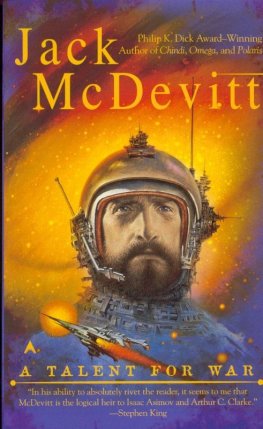

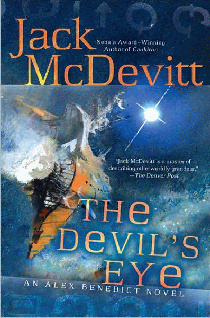
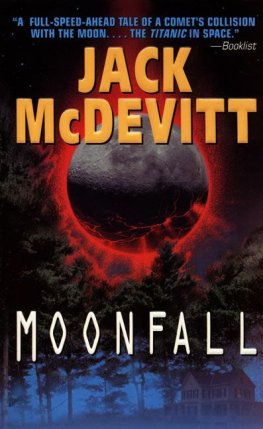
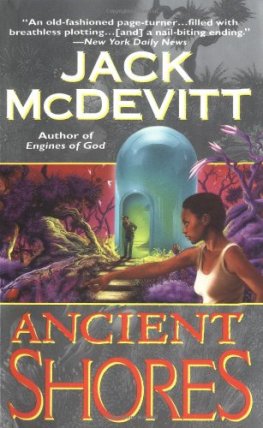

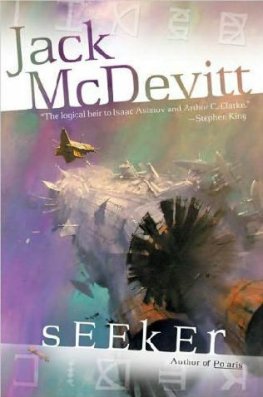


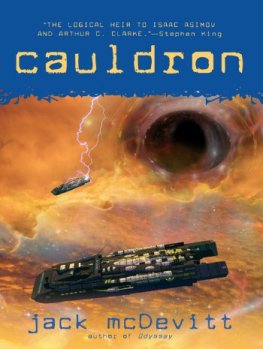
![Garri Garrison - Bill, the Galactic Hero [= The Starsloggers]](/uploads/posts/book/773384/thumbs/garri-garrison-bill-the-galactic-hero-the.jpg)
